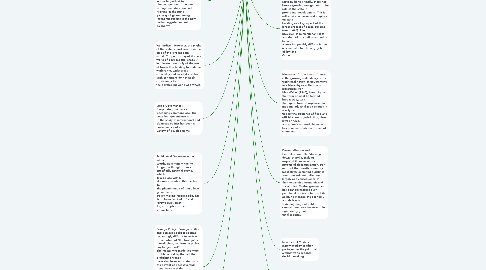Heywood Mind Map (Sovereignty)
by Maereg Habtezgi

1. Welfare state : States in the capitalist world nevertheless also demonstrated a marked tendency towards economic and social intervention, albeit of a more modest kind.
2. Competition States : The competition state is a state that aims to secure economic growth within its borders by securing competitive advantages in the wider global economy. Competition states are distinguished by the recognition of the need to strengthen education and training as the princi- pal way of guaranteeing economic success in the new technology-dependent Economy.
3. Warlordism : However, the plight of the state is most serious in the case of the ‘pre-modern’ world. Cooper portrayed this as a world of post-imperial chaos. A legitimate monopoly of the use of force, thus leading to endemic warlordism, widespread criminality and social dislocation. Such conditions do not apply consistently to the developing world as a whole.
4. Foreign Policy : Foreign politics and domestic politics became increasingly difficult to sustain. If the notion of ‘the foreign’ is meaningless, can foreign policy any longer exist? The matter was made yet more problematical by the fact that globalizing trends have also been associated with the advent of post-sovereign governance and the burgeoning importance of non-state actors: TNCs, NGOs, terrorist groups, international organizations and so on. At the very least this meant that foreign policy can no longer be thought of simply as ‘what states do to, or with, other states’.
5. Why Sovereignty Is outdated : Permeable borders Non State Actors Collective DIlemma International Human Rights
6. Multi Level Governance : In other words, government can no longer be thought of as a specifically national activity which takes place within discrete societies. This has led to the phenomenon of ‘multi-level governance’. Policy-making responsibility has both been ‘sucked up’ and ‘drawdown’, creat- ing a complex process of interactions.
7. Good Governance : ‘corporate governance’ becoming commonplace. The so-called ‘governance turn’ in the study of international and domestic politics has been a consequence of a variety of developments.
8. State Transformation
9. Collectivized states : The most extreme example of this was the development of collectivized states, which attempted to bring the entirety of economic life under state control.
10. State Building : Finally, there has been a growing recognition of the role of the state in promoting development. This is reflected in an increased emphasis on state- building as a key aspect of the larger process of peace-building (see p. 445). The provision of humanitarian relief and the task of conflict resolution become almost insuperably difficult in the absence of a functioning system of law and Order.
11. Hierarchy : At the heart of these is the growing redundancy of the traditional notion of government as a hierarchy or collection of hierarchies. For Max Weber (1948), hierarchy, in the form of what he termed bureaucracy, was the typical form of organization in modern industrialized societies. It was typi- fied by the existence of fixed and official areas of jurisdiction, clear laws or rules, and a firmly ordered hierarchy based on an established chain of command.
12. Decentralization and Centralization : The ‘drawing down’ of policy-making responsibilities reflects a process of decentralization. For much of the twentieth century, most states exhibited a distinct trend towards centralization, largely as a consequence of their expanding economic and social roles. Central government has clear advantages over peripheral bodies in terms of its ability to manage the economy and deliver a widening range of public services, not least because of its significantly greater fiscal capacity.
13. Why Sovereignty Is Not Outdated : Myth of the borderless world States remain Dominant Pooled Sovereignty Enduring attraction of nation state
14. Incremental Models : Incrementalism is often portrayed as the principal alternative to rational decision-making.


